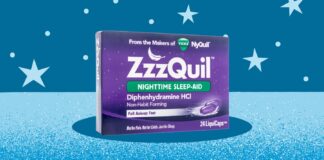Eosinophilic esophagitis (EoE) is a chronic inflammatory disease affecting the esophagus, often causing difficulty swallowing, chest pain, and food impaction. However, beyond the physical discomfort, EoE significantly increases the risk of mental health challenges, including depression, anxiety, and avoidant/restrictive food intake disorder (ARFID). Managing this condition isn’t just about dietary restrictions or medication; it’s about acknowledging and addressing the emotional strain it places on individuals.
The Link Between EoE and Mental Health
Chronic illness, particularly those involving persistent discomfort or limitations, frequently co-occurs with emotional distress. EoE is no exception. The condition’s impact on daily life – from mealtime anxiety to social isolation – can erode mental well-being. Adding to this, the average diagnosis time for EoE is four to six years, leaving many frustrated and helpless while seeking answers. Even after diagnosis, the ongoing need to manage symptoms can feel overwhelming.
Research confirms this connection. Studies show that EoE’s disruption of sleep, social interactions, and overall function is linked to increased rates of depression and anxiety. The restrictive eating required to manage symptoms can also contribute to the development of ARFID, a serious eating disorder where individuals avoid certain foods due to fear or discomfort.
The Weight of Stigma and Isolation
Another critical factor is the stigma surrounding EoE. Many patients report feeling discriminated against or negatively judged by family, friends, and even healthcare professionals. This is especially damaging because eating is a fundamental social activity. EoE can turn enjoyable experiences, like dining out or celebrating birthdays, into sources of anxiety and discomfort.
Strategies for Supporting Emotional Health
Managing EoE effectively requires a holistic approach that prioritizes mental well-being alongside physical treatment. Here are evidence-based strategies to consider:
- Stay Connected: Maintain strong relationships with loved ones for emotional support.
- Prioritize Physical Activity: Exercise releases endorphins and reduces stress.
- Engage in Meaningful Activities: Pursue hobbies and interests that provide joy and accomplishment.
- Open Communication: Talk about your health challenges with trusted friends and family.
- Support Groups: Connect with others who understand your experience through in-person or online communities.
- Mental Health Screening: Get evaluated for depression and anxiety by a qualified professional.
- Relaxation Techniques: Practice deep breathing or mindfulness to manage stress.
Seeking Professional Support
Don’t hesitate to reach out to your healthcare team. Gastroenterologists are increasingly aware of the mental health risks associated with EoE and can refer you to a mental health provider specializing in chronic illness. Psychotherapy can equip you with coping strategies to regain control, recognize early warning signs of distress, and prevent emotional overwhelm.
The Bottom Line
Eosinophilic esophagitis is more than just a physical ailment; it’s a chronic condition with a significant emotional toll. Recognizing this connection, prioritizing mental health alongside physical treatment, and seeking professional support are crucial steps toward improving overall well-being. Ignoring the emotional burden of EoE can lead to long-term suffering and diminished quality of life.
Resources:
- Mayo Clinic: https://www.mayoclinic.org/diseases-conditions/eosinophilic-esophagitis/symptoms-causes/syc-20372212
- Cleveland Clinic: https://my.clevelandclinic.org/health/diseases/15365-eosinophilic-esophagitis
- American Academy of Allergy Asthma & Immunology: https://www.aaaai.org/conditions-and-treatments/eosinophilic-esophagitis




















